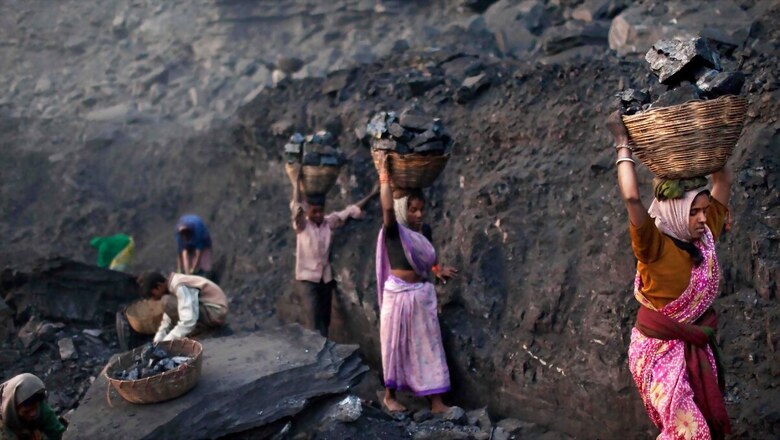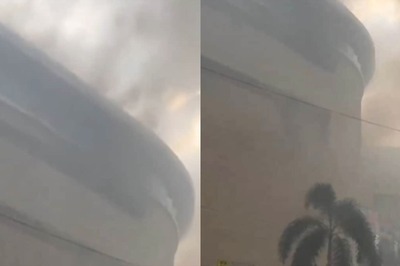
views
Coal is projected to continue as the backbone of India’s energy system for the next two decades, according to a new report on energy transition prepared by the Indian Institute of Management (IIM), Ahmedabad. However, the non-fossil energy – renewable and nuclear – needs to replace the fossil fuel share slowly but surely, it stated.
The report was sanctioned by the Office of the Principal Scientific Advisor (PSA) to the government in November 2021 as part of a study project and addresses key questions on India’s energy trajectory, including how much energy India needs to achieve the high value of Human Development Index (HDI), pathways to achieve it and the energy mix projections for this until 2070.
LARGE ROLE OF NUCLEAR ENERGY ‘INEVITABLE’
According to the report, ‘net-zero’ is a challenge for India, and it is impossible to meet this goal by 2070 without substantial nuclear power and renewable energy generation, which is critical for providing clean, affordable power at low levelised cost of electricity for consumers.
The coal phase-down will require active policies on critical minerals and carbon dioxide removal technologies. The electricity sector will need to decarbonise well before 2070. Widespread electrification of transport and residential sectors and low-carbon and/or green hydrogen production will rapidly increase the electricity demand after 2050, but not a corresponding increase in the carbon footprints of the power sector.
The report estimates that over Rs 150-200 lakh crore ($2-2.5 trillion) will be required during 2020-2070 for reaching the goal, and a considerable part of the financial flow must be international.
Dr VK Saraswat, Member, NITI Aayog, said development-led approach is the right approach to clean energy transition, even though such transition is going to be expensive. “More renewable energy penetration is needed with baseload energy sources as nuclear. Without nuclear energy, the storage requirements for renewable will be very high to tackle the intermittency of its supply. This will, in turn, enhance the dependence on critical minerals which is not sustainable,” he said.
NO SILVER BULLET TO ACHIEVE NET-ZERO BY 2070
Anil Kakodkar, former chairman, Atomic Energy Commission, who was also present at the release of the report, said India must decide her own strategies and priorities based on sound logic and assessments rather than being driven by vendors appearing at different points of time. “Most studies underestimate India’s energy needs, therefore, a strong need was felt for independent domestic studies on energy transition study from India’s perspective,” he said.
The report estimates that India’s emissions would range between 0.56 btCO2 and 1.0 btCO2 in 2070. It is expected that the remaining gap in emissions will be offset through sequestration in forestry and tree cover as envisaged in the Nationally Determined Contributions (NDCs). The report also recommends a level playing field for all low-carbon technologies by avoiding any preferential treatment for only select technologies, and a screening program to explore naturally occurring hydrogen in India.
“This comprehensive study brings together aspects from all sectors of power generation in one place, and will be helpful in the planning stages of our endeavours in clean energy,” said PSA Professor Ajay Sood while releasing the report in New Delhi.
The report has also received one-third funding from the Nuclear Power Corporation of India (NPCIL).




















Comments
0 comment